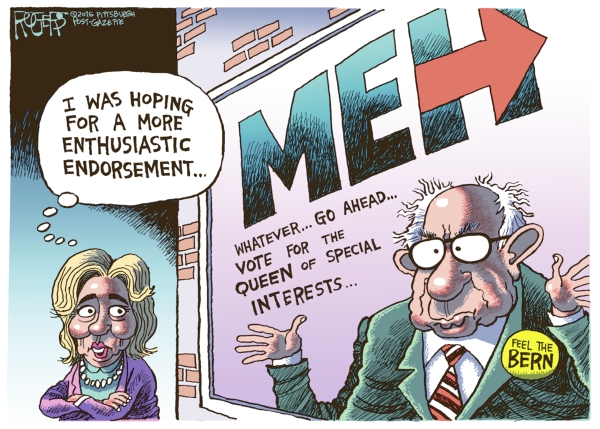Gene Lyons: Indictment was never close for Hillary Clinton
Published 12:46 pm Friday, July 15, 2016
Return with us now to those thrilling days of yesteryear: specifically to September 1992, when Attorney General William P. Barr, top-ranking FBI officials, and — believe it or not — a Treasury Department functionary who actually sold “Presidential Bitch” T-shirts with Hillary Clinton’s likeness from her government office, pressured the U.S. Attorney in Little Rock to open an investigation of Bill and Hillary Clinton’s Whitewater investment.
The Arkansas prosecutor was Charles “Chuck” Banks, a Republican appointed by President Reagan, and recently nominated to a federal judgeship by President George H.W. Bush. It was definitely in Banks’ interest to see Bush re-elected.
The problem was that Banks knew all about Madison Guaranty S&L and its screwball proprietor, Jim McDougal. His office had unsuccessfully prosecuted the Clintons’ Whitewater partner for bank fraud. He knew perfectly well that McDougal had deceived them about their investment, just as he’d fooled everybody.
Banks and local FBI agents were unimpressed with the “Presidential Bitch” woman’s analysis. She showed a shaky grasp of banking law, and obvious bias. When FBI headquarters in Washington ordered its Little Rock office to proceed on L. Jean Lewis’ criminal referral, Banks had to act.
He wrote a stinging letter to his superiors in the Department of Justice refusing to be a party to a trumped-up probe clearly intended to affect the presidential election. “Even media questions about such an investigation,” he wrote, “all too often publicly purport to ‘legitimize what can’t be proven.’”
Keep that phrase in mind.
Banks promised to refer reporters to the attorney general. And that was the end of the Bush administration’s “Hail Mary” attempt to win the 1992 election with a fake scandal. Also the end of Chuck Banks’ political career.
The prevailing themes of the Clinton Legends, however, were set: imaginary corruption, and a “Presidential Bitch.” Eight years and $70 million later, Kenneth Starr’s Whitewater prosecutors folded their cards, proving the Little Rock prosecutor had been right all along.
Shamefully, several of Starr’s assistants recently showed up in the Washington Post reminiscing about how they almost indicted Hillary Clinton. Except that they never did, and for the same reason FBI director James Comey wouldn’t dare take his largely adverbial case (“extremely,” “carelessly,” etc.) into a courtroom against her.
Because when the accused can afford competent defense counsel, a bogus case endangers the prosecutor more than the defendant. Indict the former Secretary of State and lose? Goodbye, career.
Back to Comey’s successful grandstand play. Successful at protecting Comey’s own career while wounding the Democratic presidential nominee, that is. No way could the former Secretary of State be prosecuted for mishandling classified information without convincing evidence that a bad guy got his hands on it.
Clinton herself noted that Comey was simply speculating. “But if you go by the evidence,” she said, “there is no evidence that the system was breached or hacked successfully.” (Although the State Department’s was.) You can’t convict somebody with maybe.
What secrets? Slate’s Fred Kaplan explains: “Seven of (Clinton’s) eight email chains dealt with CIA drone strikes, which are classified top secret/special access program — unlike Defense Department drone strikes, which are unclassified. The difference is that CIA drones hit targets in countries like Pakistan and Yemen, where we are not officially at war; they are part of covert operations … But these operations are covert mainly to provide cover for the Pakistani and Yemeni governments, so they don’t have to admit they’re cooperating with America.”
Top secret, maybe. But regularly featured in The New York Times. The eighth email chain was about the president of Malawi.
Even Comey’s press conference assertion that Clinton handled emails marked classified failed to survive a congressional hearing. Shown the actual documents, Comey conceded that they weren’t properly marked.
Michael Cohen in the Boston Globe: “Whatever one thinks of Clinton’s actions, Comey’s depiction of Clinton’s actions as ‘extremely careless’ was prejudicial and inappropriate. The only reason for delivering such a lacerating attack on Clinton was to inoculate Comey and the FBI from accusations that he was not recommending charges be filed due to political pressure. But that’s an excuse, not an explanation, and a weak one at that.”
The very definition, indeed, of legitimizing “what can’t be proven.”
Gene Lyons is a columnist for The Arkansas Times.


